It could be a scene from centuries ago. In the Nevada desert, Native Americans protest a mining project they say desecrates sacred land.
They ride to Sentinel Mountain, which their ancestors once used as a lookout in times past. Here, it is said, more than 30 of their people were slaughtered by American cavalry in 1865.
Today, the earth is at the heart of America’s electric car revolution and Joe Biden’s clean energy policy
Native American tribal members say the mine neglects their interests and offends their history.
The route of the “Prayer Horse Ride”, a journey on horseback through mining-affected communities in Northern Nevada, is designed to publicize their objections.
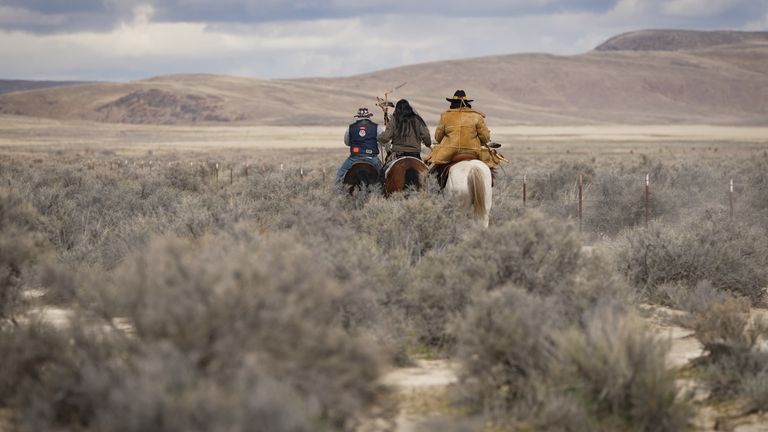
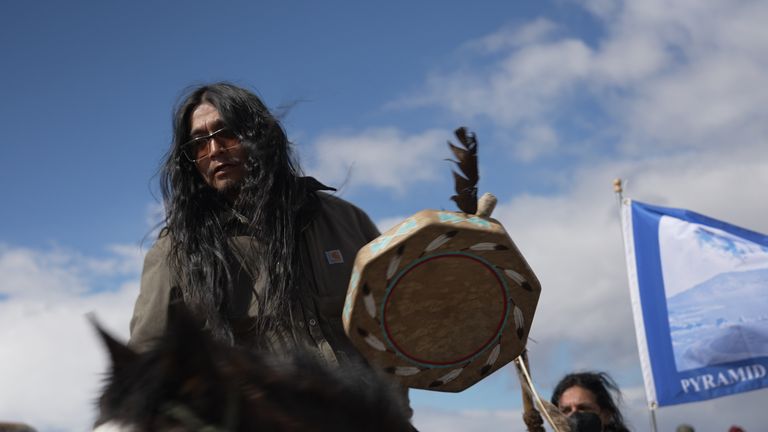
“Being the original inhabitants of the land means we have cultural ties and roots to these landscapes,” says Gary McKinney, a member of the Duck Valley Shoshone Paiute tribe.
“To me, it’s holy ground,” says Myron Smart. His grandmother survived the massacre of 1865 as a baby. Industrializing this place, he says, offends her memory and reflects the story of Native Americans through time.
“We’re human too. We have red blood just like everyone in America.”
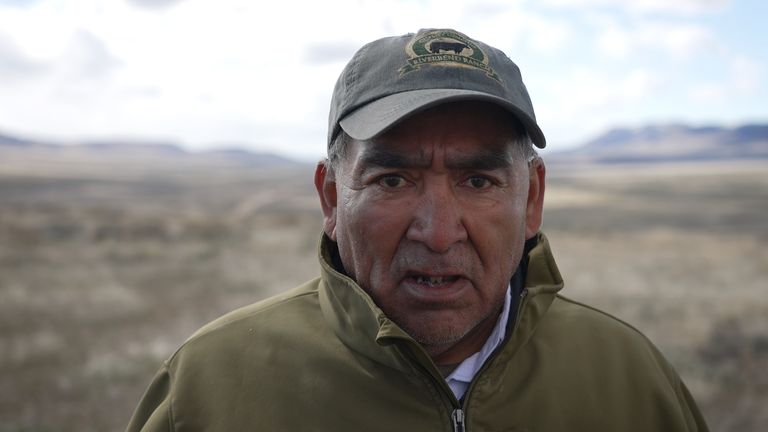
Myron Smart says the land is holy land
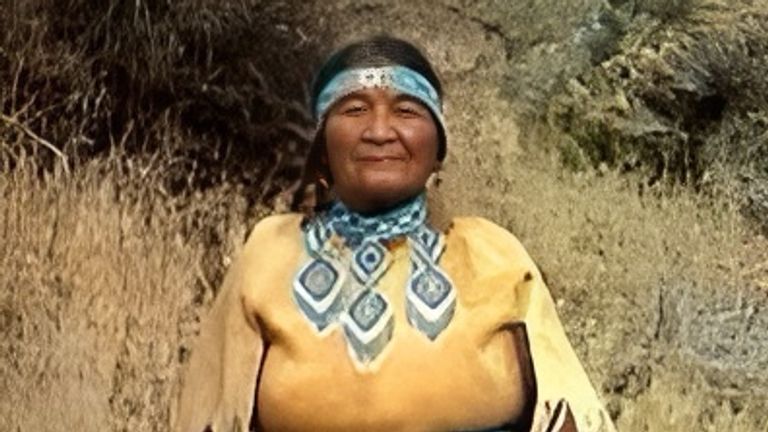
Myron Smart’s grandmother, who survived the 1865 massacre
However, a US judge dismissed their complaints and the project is moving forward.
The open pit mine, which is on public land, will source lithium to power up to a million electric vehicles a year and create 1,800 jobs in its construction phase.
President Biden aims to make the United States a world leader in electric vehicle technology and reduce dependence for lithium supply on countries such as China.
The Thacker Pass project has supporters as well as opponents.
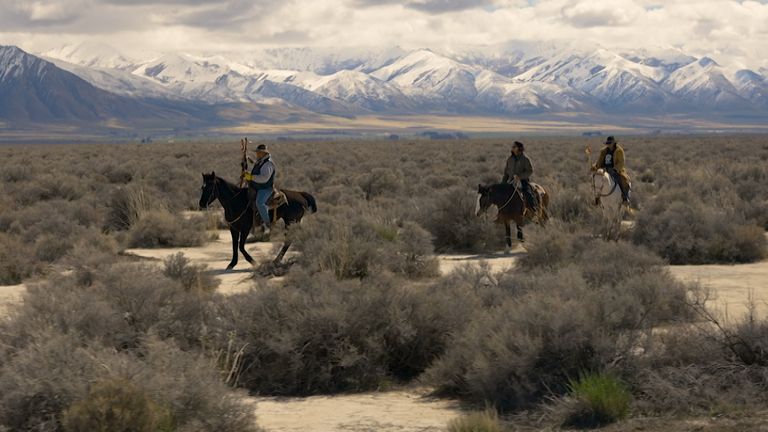
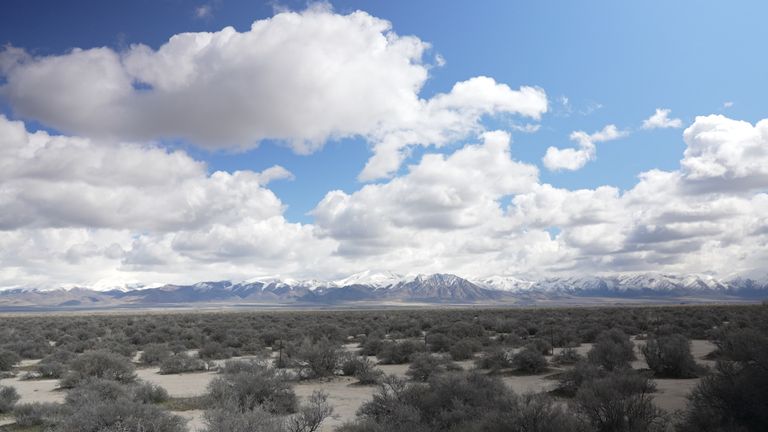
Lithium Americas, the company behind the project, insists the mine is not located on a mass site. This was supported by a judge in 2021 who ruled the evidence presented by tribes “does not definitely establish that a massacre occurred” within the proposed project area.
Tim Crowley, the company’s vice president of Government and External Affairs, said in a statement to Sky News: “Lithium Americas is committed to doing this project right, which is why we have a community benefits agreement with the local Fort McDermitt Paiute and Shoshone. A tribe that ensures benefits from Thacker Pass gets to them.
“Cultural and environmental resource concerns were fully addressed in the BLM’s (Bureau of Land Management) approved Environmental Impact Statement, which has withstood extensive review by the Federal District and Circuit Courts.”
However, members of different Nevada-based Native American tribes continue to oppose the mining project. They say their evidence for the 1865 massacre, and a particular inter-tribal conflict, is rooted in the oral history handed down by their ancestors, through generations – not compared to a court case in mind, but compelling nonetheless.
“In the days of our ancestors, they didn’t write any documentation, they didn’t send letters, they didn’t write in journals,” says Gary. “So there was no way the US government could know our story.
“These stories have been passed down from generation to generation, so we have a direct lineage of survivors of these massacres, how these stories stay in our families.”
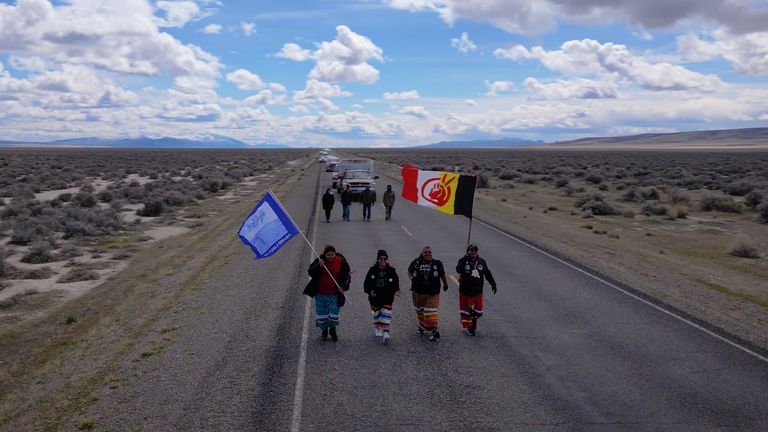
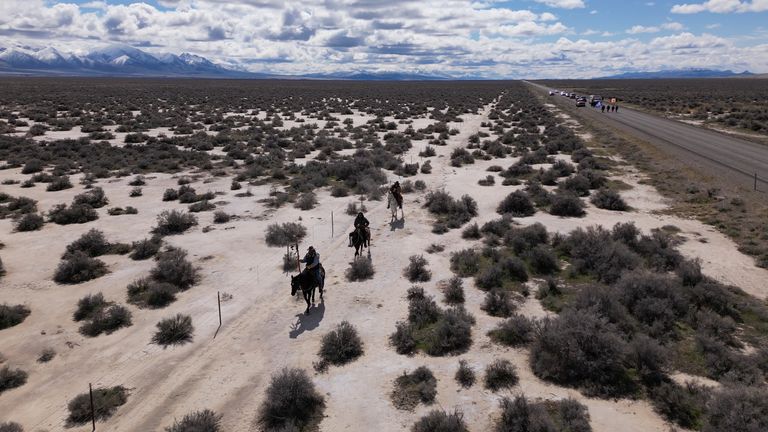
The courts also rejected complaints from tribal members and environmentalists about the environmental impact and planning consultation.
The project focuses on the issues surrounding the pursuit of clean energy.
“First, we have to acknowledge that we need electric vehicles,” says Amanda Hurowitz of Mighty Earth, a global environmental non-governmental organization.
They’re more efficient than gasoline and diesel cars, she says, and they’re needed for America to meet its climate goals.
But they also need more minable minerals – like lithium – and pulling those materials out of the ground has an impact.
“All mining operations must get consent from the local people,” she adds, “and the more consent, the better.”
This story originally appeared on News.sky.com read the full story







































